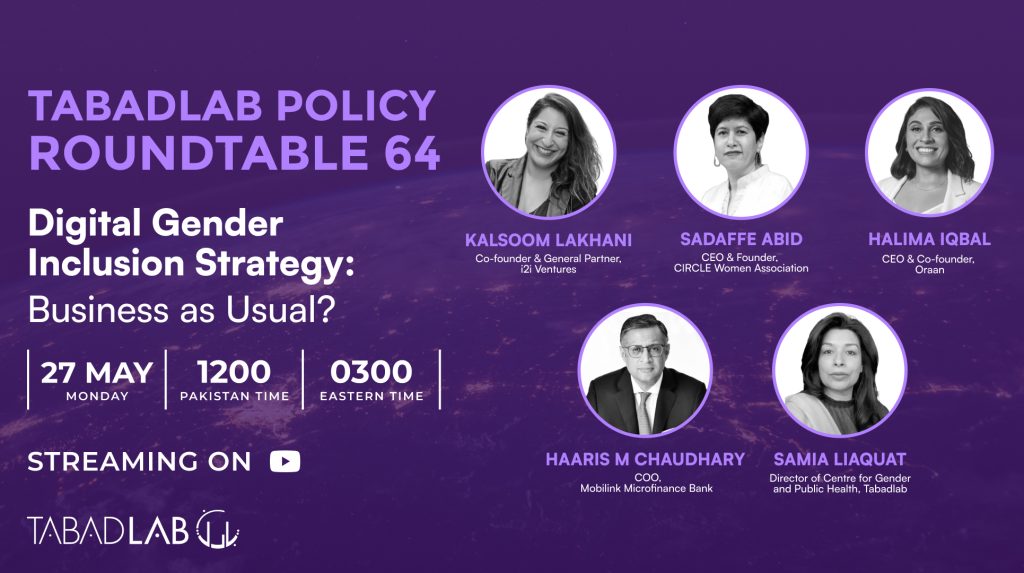PTA’s Digital Gender Inclusion Strategy – Does It Work?
Closing the Gap: Is the PTA’s Digital Gender Inclusion Strategy a step in the right direction?
Panelists say the strategy should begin with semi-urban communities and gradually extend to rural areas
Digital literacy, access to the internet as we know in today’s world are a basic fundamental human right, said Sadaffe Abid, CEO Founder and CEO, CIRCLE Women Association, while speaking on Tabadlab’s 64th policy roundtable, on Monday. She added that if we are not going to invest in it, if we are not going to bridge it then women and girls of our country are going to be left behind. Abid was part of a panel titled “Digital Gender Inclusion Strategy: Business as Usual”, to discuss the recently launched Digital Gender Inclusion Strategy.

The panel was moderated by Samia Liaquat, Director of Centre for Gender and Public Health, Tabadlab, and included Kalsoom Lakhani, Co-founder and General Partner at i2i Ventures, Halima Iqbal, CEO and Co-founder Oraan and Haaris Mahmood Chaudhary, COO, Mobilink Microfinance Bank.
Last month, the Pakistan Telecommunications Authority (PTA) launched the Digital Gender Inclusion Strategy which examines the gender digital divide and increase gender participation in digital transformation. It highlights some of the critical challenges the report highlights to women are education, their limited ability to access mobile phones, family disapproval, cost of buying phones, safety and security concerns. It also highlights a concern by a large majority of people that the internet is not relevant for women. To take the conversation forward, Tabadlab, a think tank in Islamabad, decided to dig deep and discuss the next steps with a panel of experts.

Lakhani highlighted the structural challenges hindering women from becoming agents of their own change, “Often policies often give consideration to outputs over outcomes, leading to reduced effectiveness,” she said.
Iqbal stressed the importance of involving decision-makers within households to influence behaviour positively and drive meaningful change: “By engaging families, we can create a supportive environment for digital literacy and inclusion,” she shared.
Chaudhary pointed out that Pakistan faces obstacles such as low Average Revenue Per User (ARPU) and high taxes. “These factors deter telecom giants from investing in critical infrastructure. Similarly, the heavy taxation on phones also does not provide the conducive environment for investors with regards to taking initiatives.”
Abid said that it was imperative to provide recommendations to strengthen the Strategy, and that there should be a focus on digital literacy through steps which can reach women so they can also have access to the internet.
Lakhani felt that there should be a deeper study which can only happen by asking the right questions and understanding the landscape. Chaudhary said that an enabling environment for public private partnership is key to bridge the digital gap so that telcos and government can work together without inhibition. Iqbal recommended that the strategy should be approached with a holistic perspective especially to look for any contradictory policies which may lead to women’s exclusion as opposed to their inclusion.




